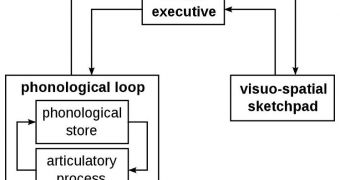In what could best be described as a bittersweet discovery, investigators have learned that, while feeling good may be beneficial for a person, this may also impede their working memory's ability to process and store recent information.
In other words, whenever people are happy, their working memories become less efficient at taking in whatever information the individuals just heard, read, or were told. As such, even if they are questioned about recent data while in a good mood, many will not remember what they are being asked.
Working memory plays a significant role in recalling information during conversations. We use it for example to respond to an argument another has made, while at the same time making reference to things that were said from the beginning of the conversation onwards.
In a set of experiments, two groups of participants were asked to watch either a snippet from a stand-up comedy routine, or a video instructing them how to install floor tiles. All test subjects had their moods assessed before and after watching the videos.
As expected, those who watched the funny clip were in a better mood than those who did not. People in the other group exhibited the same type of mood before they watched the instructional video.
A memory test was applied soon afterwards, and the participants were played back an audio file in which someone said a series of numbers, at a rate of four per second. When the clip stopped, the test subjects had to write down the last six numbers they heard, in order.
Those in the first group performed a lot worse than their peers who were in a neutral mood. “This explains why you might not be able to remember a phone number you get at a party when you are having a good time,” says expert Elizabeth Martin, quoted by PsychCentral.
She holds an appointment as a PhD student in psychology at the University of Missouri, and is also the lead author of a new study detailing the findings. The findings were published in a recent issue of the esteemed journal Cognition and Emotion.
“While working memory storage is decreased, being in a good mood is not all bad. Being in a good mood has been shown to increase creative problem-solving skills and other aspects of thinking,” the scientist reveals.
“This research is the first to show that positive mood can negatively impact working memory storage capacity,” Martin explains. She adds that future studies will be focused on determining how good mood affects working memory in real-life situations, such as for example in a college classroom.

 14 DAY TRIAL //
14 DAY TRIAL //